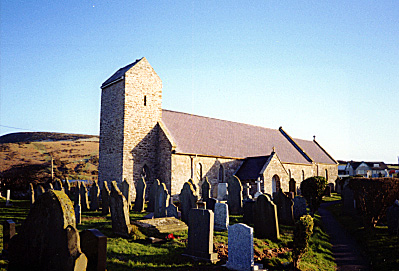
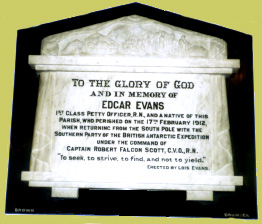
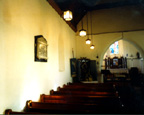
Edgar Evans--Chief Petty Officer, RN--was a member of Scott's Discovery expedition and along with Lashly and Scott sledged close to 700 miles across Victoria Land. Held in high regard by Scott for "his resourcefulness, his strength and fund of anecdotes," 'Taff' Evans came back for more, jumping at the chance to volunteer for the Terra Nova expedition. He was chosen for the Polar Party and, ironically perhaps, was the first of the five to succumb on the return from the Pole. He died on the Beardmore Glacier.
Seemingly little was done to commemorate Evans over the years; to some he was the forgotten man from the 'lower deck.' Although an item in the South Wales Evening Post as recently as 1966 decried the fact that no memorial for Evans existed in Swansea--the place of closest association--he was memorialized, to a greater or lesser degree, in numerous locations. Here are a few:
Evans was baptised (April 1876) and married (December 13, 1904)--as were his parents--in St Mary the Virgin, Rhosili, on the Gower Peninsula of Wales, west of Swansea (209). (He was born nearby at Fernhill Top Cottage, Middleton.[210]) There is a plaque in the church, dedicated on January 27, 1914, that reads: "To the Glory of God and in memory of Edgar Evans 1st Class Petty Officer, R.N., and a native of this Parish, who perished on the 17th February 1912, when returning from the South Pole with the Southern Party of the British Antarctic Expedition under the command of Captain Robert Falcon Scott, C.V.O., R.N. 'To seek, to strive, to find, and not to yield.' Erected by Lois Evans."



Swansea seems actually to have done quite well in remembering Evans, even if belatedly. The Swansea Museum, Victoria Road, has an exhibit on Evans; a plaster model of him pulling a sledge, entitled A Giant Worker made by a former miner, George Evans (no relation) from Banwen, Meath; and two oil paintings in memory of Evans, presented by the artist, John J. Jones of Morriston [actually, during my visit I had no luck in finding these paintings]. Also in its collections is one of Evan's boots, a spool of thread and a neck lanyard. Of major interest--and probably the outcome of the South Wales Evening Post item noted above--is a sculpted bust of Evans. "On the eighty-second anniversary of his death, a Civic Ceremony was held at the Brangwyn Hall, Swansea, on 17 Februay 1994.... A bust of Edgar, taken from the famous photograph of him at the South Pole, was presented to the City of Swansea by the Lord Lieutenant of West Glamorgan, Sir Michael Llewellyn.... Commissioned by the Captain Scott Society of Cardiff....the bust was made in Gower of white Italian marble by sculptor Philip Chatfield, and later that year it was prominently sited in the Swansea Museum." (221)
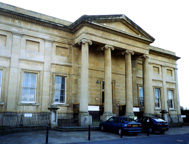
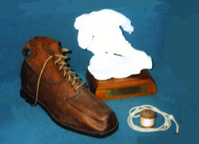

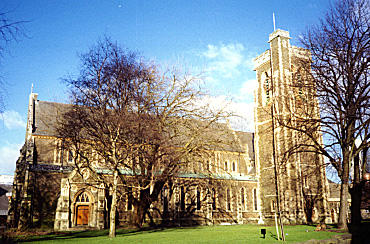

Update 13 March 2000: In June of 1999 I arranged a visit to Whale Island (also known as "H.M.S. Excellent," a naval training facility) where I was led around by Warrant Officer Chris Bailey. The Edgar Evans Building (139) is a large structure that includes accommodation and other uses and, happily, the Senior Ratings Mess where we had lunch and a pint. At the entrance of the building is a bronze plaque that reads: "This building is named in proud and honoured memory of Petty Officer Edgar Evans who gave his life returning from the South Pole 17th February 1912." At a second entrance is a stone plaque that reads: "Edgar Evans Building. This stone was laid on 21st Dec. 1962 by Vice-Admiral M. Le Fanu C.B. D.S.C. Controller of the Navy." Inside, in the lobby area, is a display of Evans-related items, his crossed skis being the centerpoint. An engraved plaque below reads: "These are the original skis used by Petty Officer Edgar Evans who was a member of the ill-fated expedition to the South Pole led by Captain Robert Falcon Scott Royal Navy in January 1912." The fact that his skis are here raises an interesting question: How did they get from where Evans died on the return from the Pole to Portsmouth? Presumably the Polar Party left them with Evans and these are a second pair that remained at Cape Evans.
